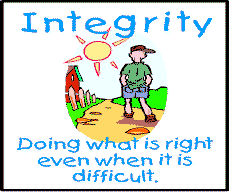Factors to Consider When Selecting a Guardian – Character

NB: This post is part of a series discussing factors you should consider when selecting a guardian for your minor children. You can read all these posts here.
It probably goes without saying that the person you select as your children’s guardian should not be someone with a criminal record or a history of child abuse.
In fact, a court will investigate whether a prospective guardian has any complaints against him or her, particularly concerning child abuse. The Texas statutes also disqualify a person whose conduct is “notoriously bad” or otherwise unsuitable to serve as guardian.
But just because someone is free of a criminal background doesn’t mean he or she is a suitable guardian. His or her character is important because whomever you select will have the enormous responsibility of being your children’s surrogate parent if the unthinkable happens.
Evaluating the candidates
In evaluating the people you are considering as your children’s guardian, ask yourself the following questions:
- Does she consistently demonstrate good judgment?
- Does he have a responsible lifestyle?
- Is she patient?
- Does she demonstrate honesty, integrity and self control?
- Does he have any psychological or personality problems?
- Is she dependable?
- Does he honor commitments?
- Does she deal well with adversity?
Select a guardian who will be a good role model
The person you select as your children’s guardian should be someone who will be a good role model for your children. Those who make consistently poor decisions, whether personal or financial, are a risky choice.
You should not automatically disqualify someone who has made a mistake. But if you notice a pattern of bad behavior, irresponsibility, volatility, or dishonesty, consider someone else.
Select a guardian who is dependable
The person you select should also be someone who is dependable and deals well with adversity. The role of guardian is a difficult one. The person you choose would be required to step in under the worst of circumstances. Therefore, he or she must have the fortitude to honor the commitment to raise your children to adulthood, regardless of the challenges encountered.
This is important because children who lose their parents are likely to be psychologically fragile. If the person entrusted with their care abandons his or her responsibility, they may suffer feelings of abandonment and distress.
Everyone makes mistakes. No one is perfect. But if your children are orphaned, they will require a certain amount of stability. And those who consistently make bad decisions or who have a proclivity to shirk responsibility would not be able to offer that.


Comments